Scientists: Fires in American West Bigger, Hotter, More Destructive
CREATING ITS OWN WEATHER
California Fire Near Oregon Border Explodes In Size Overnight Amid Potential Heat Wave Forming
It’s possible that I shall make an ass of myself. But in that case one can always get out of it with a little dialectic. I have, of course, so worded my proposition as to be right either way (K.Marx, Letter to F.Engels on the Indian Mutiny)
'Very early': Scientists date when humans first came to Alberta's oilsands region
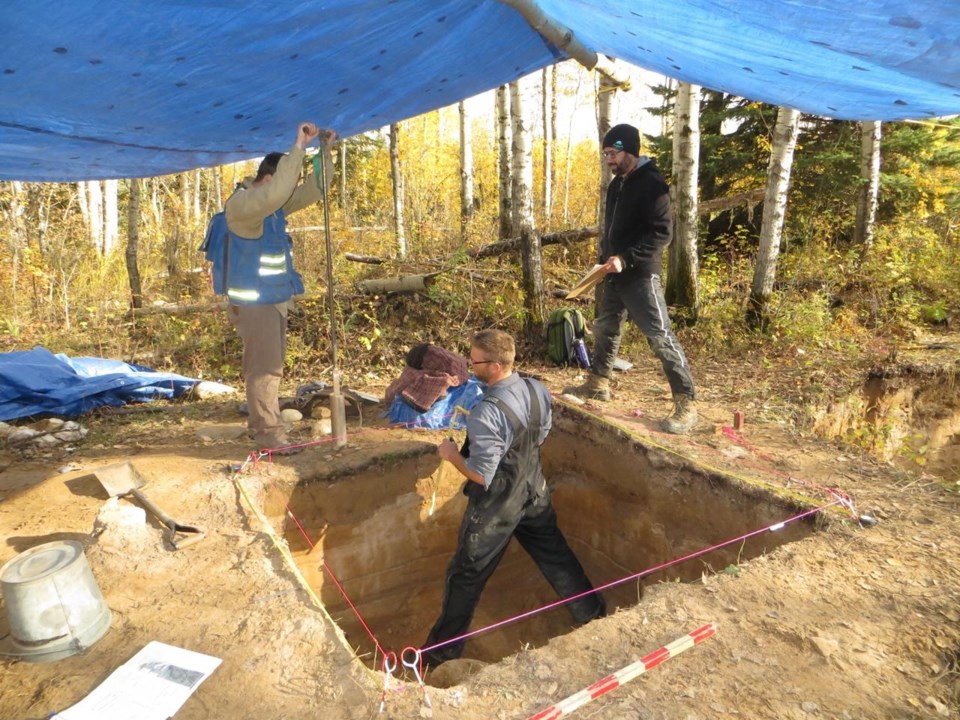
EDMONTON — New research may have answered a long-standing mystery by pinning a rough date on the earliest known humans in Canada's oilsands region.
In a recently published paper, professor Robin Woywitka of Edmonton's MacEwan University says a combination of archeology and geology has revealed that people were living around Fort McMurray, Alta., at least 11,000 years ago and perhaps as long ago as 13,000 years ago.
"People were in the Fort McMurray area very early," Woywitka said.
"Fort McMurray has been a nexus for millennia. It's attracted people forever."
Scientists have long known the region has a lengthy human history. An archeological site known the Quarry of the Ancestors has yielded millions of artifacts since it was discovered there in the 1990s.
But putting dates to them has been tough.
Standard methods such as radiocarbon dating are out. The area's acidic soils destroy the organic materials those techniques depend on.
Sometimes, scientists can use sedimentary layers in the earth to date artifacts. But this area has been so stable that there aren't many places where sediment has been deposited.
So Woywitka and his colleagues tried something new.
They took satellite maps that revealed the surface topography with an accuracy to within a few square metres. They used that information to find sites where sedimentation was most likely to have happened and selected five of them — one of them in the Quarry of the Ancestors.
Sediments from those sites were dated using a technique called infrared stimulated luminescence.
That technique exploits the fact sand grains collect tiny radioactive particles in their pores. Those particles deteriorate at a known rate when exposed to light. So, the longer they've been buried, the more particles there will be.
Infrared light causes those particles to release energy. That can then be measured to reveal when the host sand grains were buried, along with the stone tools buried beside them.
In this case, the answer was 12,000 years, give or take a millennium.
"It has more uncertainty than radiocarbon dating, but it's better than nothing," Woywitka said.
The findings put those early people right at the start of when that part of the world became livable. The first inhabitants would have moved there within a few centuries after the catastrophic flood that drained glacial Lake Agassiz, a vast inland sea that once covered almost all of what is now Manitoba and half of present-day Ontario.
The date isn't too long after humans first came to North America, which most archeologists believe happened about 16,000 years ago.
They would have found a landscape very far from the lush boreal forests and teeming wetlands that now cover much of northern Alberta.
"People are dealing with a much different environment than what we see today — open, dry, cold," Woywitka said. "Probably tundra-y or grassland."
They probably hunted bison, Woywitka said. Beyond that, there's little that can be said.
"Whether they came from the north or south, we don't know."
Despite the proliferation of artifacts, scientists can't fit them neatly into the cultural tool kits of other prehistoric people. The presence of materials from other parts of the continent suggest trading networks with other areas, but little is known.
One thing can be said.
Woywitka points out the flood that drained Agassiz exposed both the good toolmaking stone that drew people to the area as well as the oilsands, which have drawn thousands of modern-day inhabitants.
"People came 13,000 ago to get that stuff," he said. "We go to Fort McMurray today for resources."
This report by The Canadian Press was first published July 31, 2022.
— Follow Bob Weber on Twitter at @row1960
Bob Weber, The Canadian Press
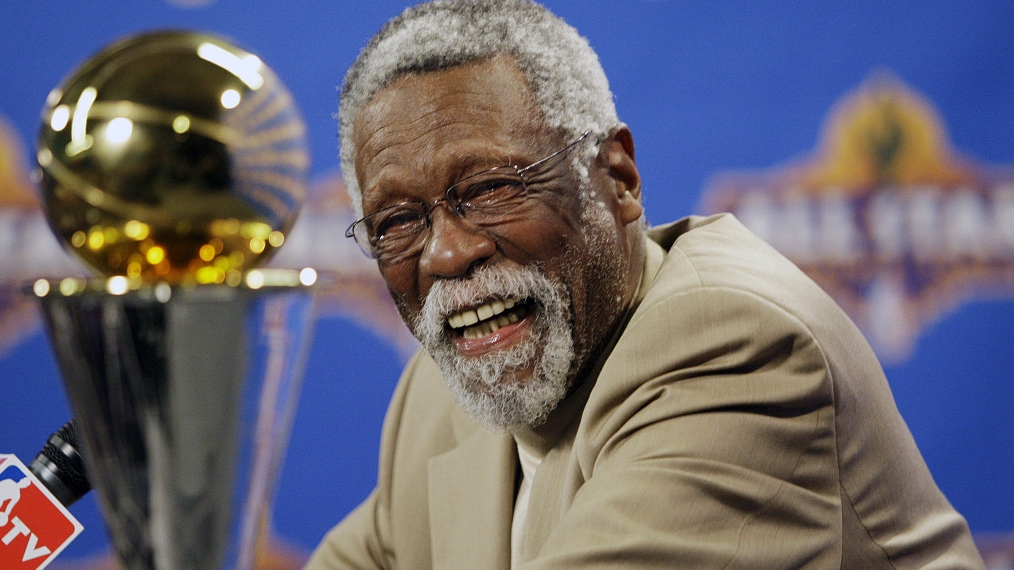
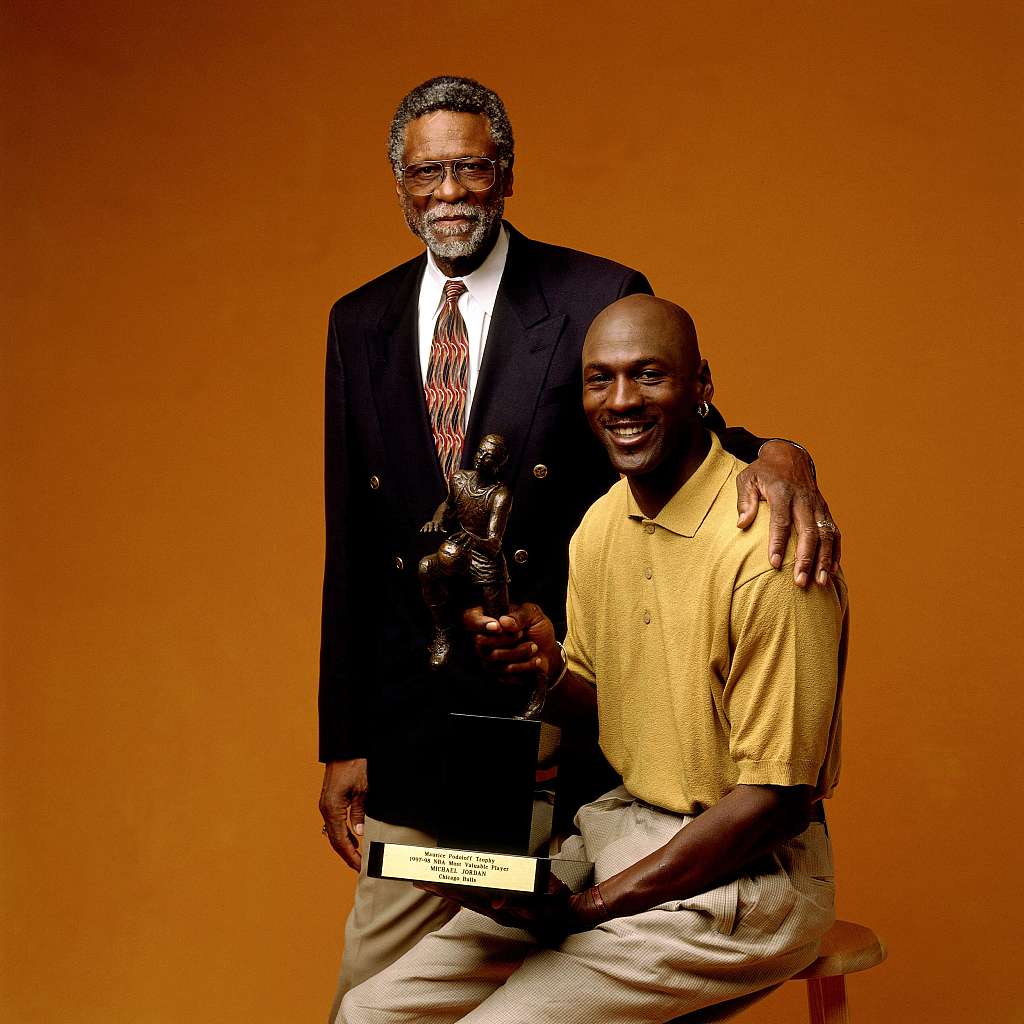
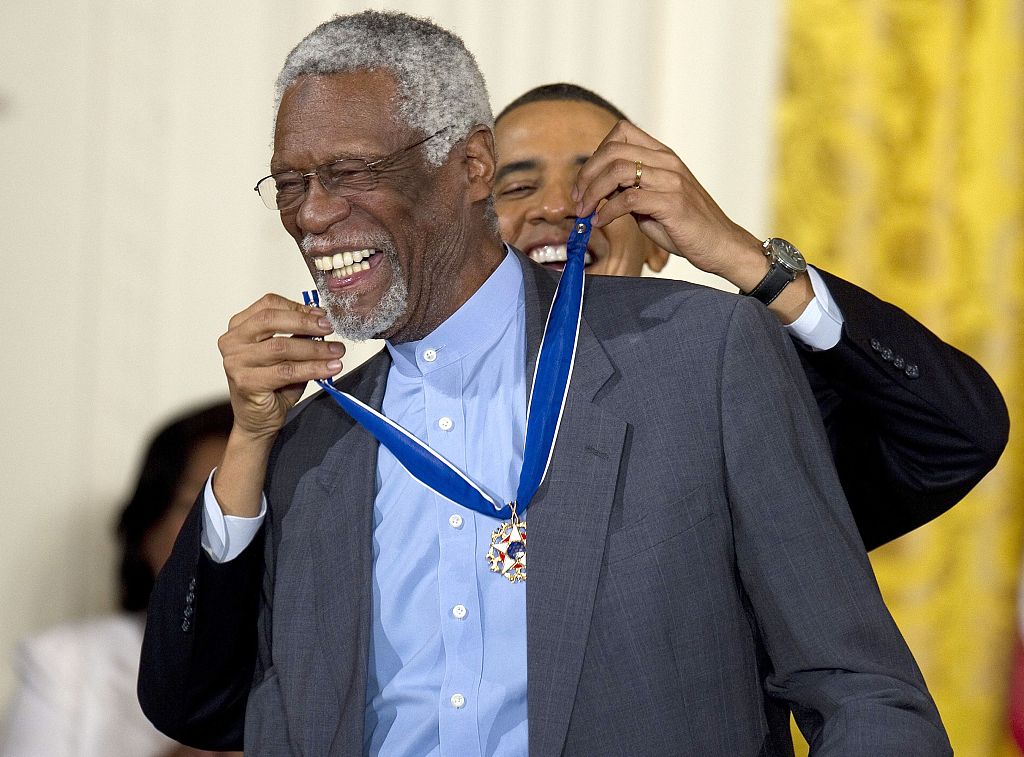
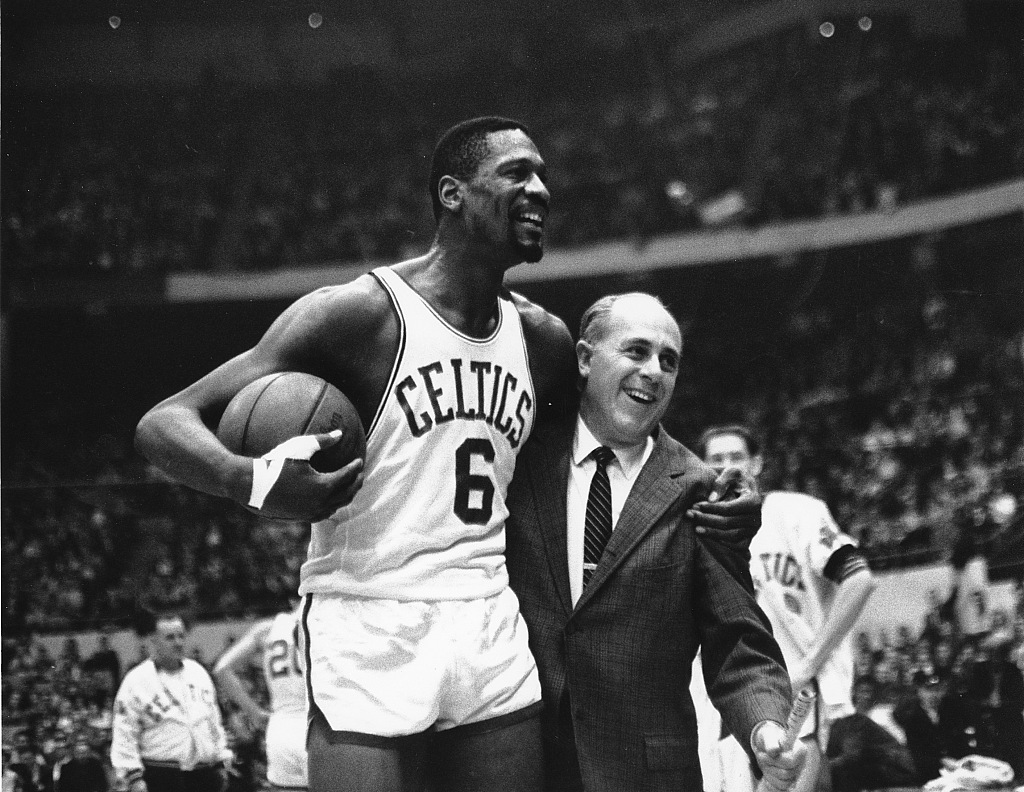
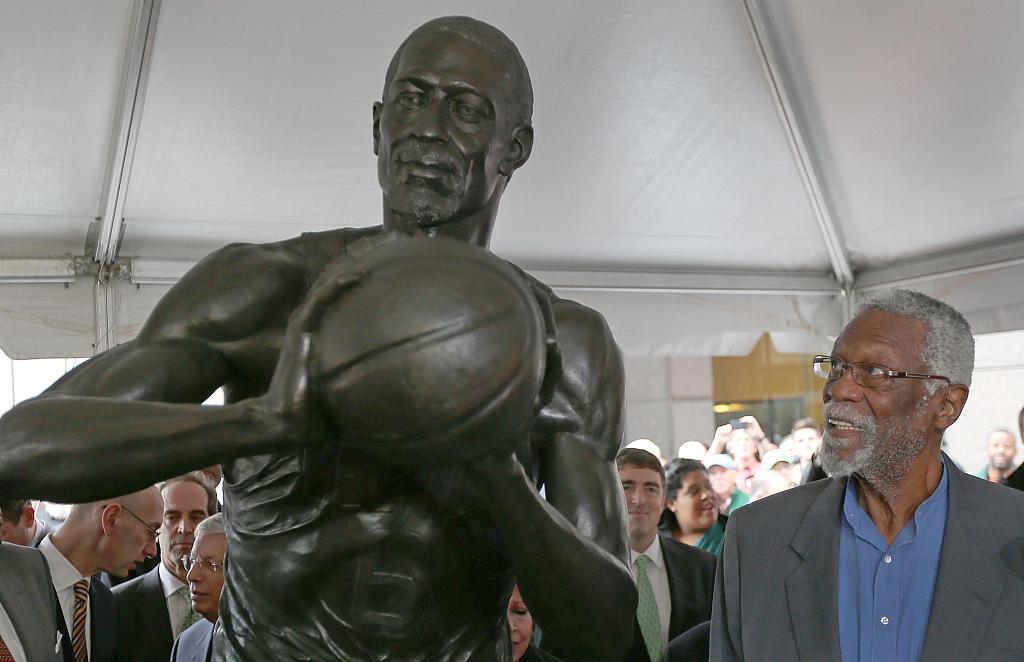
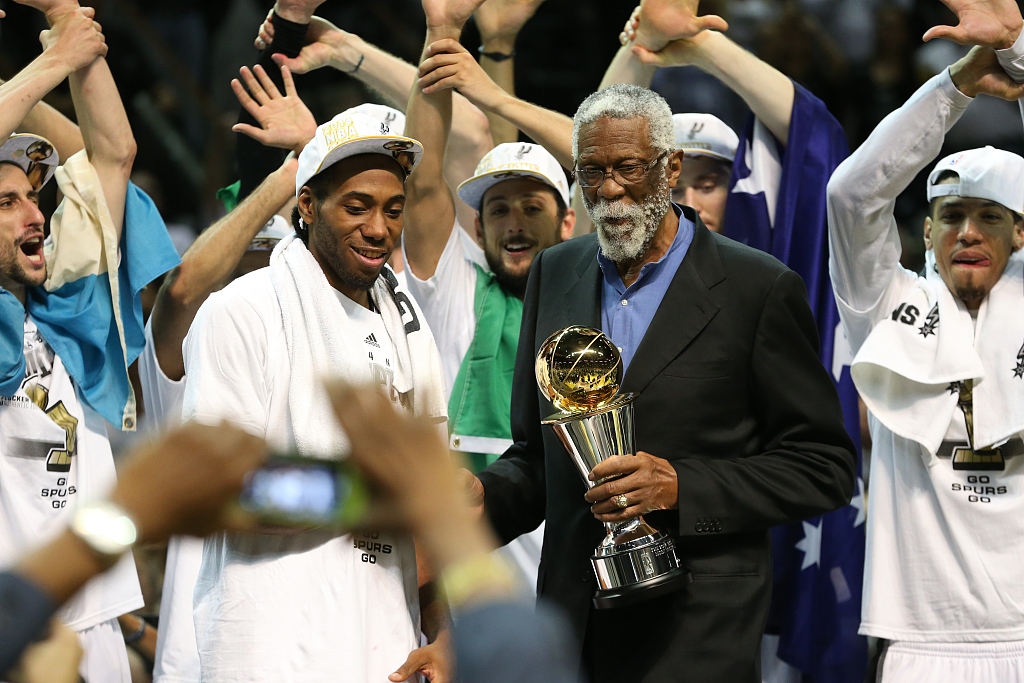
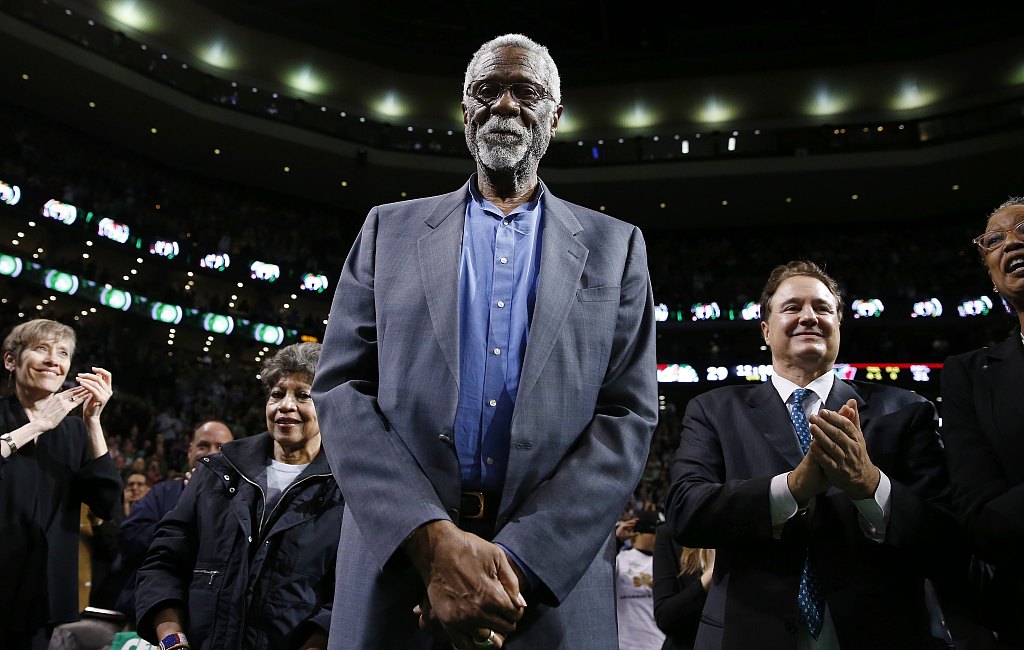
Bill Russell redefined how basketball is played, and then he changed the way sports are viewed in a racially divided country.
The most prolific winner in NBA history, Russell marched with Martin Luther King Jr, stood with Muhammad Ali and received the Presidential Medal of Freedom from President Barack Obama. The centrepiece of the Boston Celtics dynasty that won 11 championships in 13 years, Russell earned his last two NBA titles as a player-coach — the first Black coach in any major US sport.
Russell died Sunday at the age of 88, with his wife, Jeannine, at his side, his family said in a statement posted on social media. No cause of death was immediately available; Russell, who had been living in the Seattle area, was not well enough to present the NBA Finals MVP trophy in June due to a long illness.
"We hope each of us can find a new way to act or speak up with Bill's uncompromising, dignified and always constructive commitment to principle," the family said. "That would be one last, and lasting, win for our beloved #6."
A Hall of Famer, five-time Most Valuable Player and 12-time All-Star, Russell in 1980 was voted the greatest player in NBA history by basketball writers. He remains the sport's most decorated champion — he also won two college titles and an Olympic gold medal — and an archetype of selflessness who won with defence and rebounding while others racked up gaudy scoring totals.
Often, that meant Wilt Chamberlain, the only worthy rival of Russell's era and his prime competition for rebounds, MVP trophies and barroom arguments about who was better. Chamberlain, who died in 1999 at 63, had twice as many points, four MVP trophies of his own and is the only person in league history to grab more rebounds than Russell — 23,924 to 21,620.
/cloudfront-ap-southeast-2.images.arcpublishing.com/nzme/TVBCDAI3FANRB3W3MXMKDZ4YLM.jpg)
But Russell dominated in the only stat he cared about: 11 championships to two.
"Bill Russell was the greatest champion in all of team sports," NBA Commissioner Adam Silver said. More importantly, he added: "Bill stood for something much bigger than sports: the values of equality, respect and inclusion that he stamped into the DNA of our league."
In a statement released by the White House, President Joe Biden praised Russell for his lifelong work in civil rights as well as in sports, and called him "a towering champion for freedom, equality, and justice."
"Bill Russell is one of the greatest athletes in our history - an all-time champion of champions, and a good man and great American who did everything he could to deliver the promise of America for all Americans," Biden said.
Reaction poured in Sunday, from Obama to Michael Jordan, from Magic Johnson to Boston's Mayor, Michelle Wu.
"Today, we lost a giant," Obama said. "As tall as Bill Russell stood, his legacy rises far higher — both as a player and as a person. Perhaps more than anyone else, Bill knew what it took to win and what it took to lead.".
A Louisiana native, Russell also left a lasting mark as a Black athlete in a city — and country — where race is often a flash point. He was at the March on Washington in 1963, when King gave his "I Have a Dream" speech, and he backed Ali when the boxer was pilloried for refusing induction into the military draft.
In 2011, Obama awarded Russell the Medal of Freedom alongside Congressman John Lewis, billionaire investor Warren Buffett, then-German Chancellor Angela Merkel and baseball great Stan Musial.
/cloudfront-ap-southeast-2.images.arcpublishing.com/nzme/I6AQTMXVQ23ZZQM4YJIMGK2QAM.jpg)
"To be the greatest champion in your sport, to revolutionise the way the game is played, and to be a societal leader all at once seems unthinkable," the Celtics said on Sunday. "But that is who Bill Russell was."
Russell said that when he was growing up in the segregated South and later California his parents instilled in him the calm confidence that allowed him to brush off racist taunts.
"Years later, people asked me what I had to go through," Russell said in 2008. "Unfortunately, or fortunately, I've never been through anything. From my first moment of being alive was the notion that my mother and father loved me." It was Russell's mother who would tell him to disregard comments from those who might see him playing in the yard.
"Whatever they say, good or bad, they don't know you," he recalled her saying. "They're wrestling with their own demons."
But it was Jackie Robinson who gave Russell a road map for dealing with racism in his sport: "Jackie was a hero to us. He always conducted himself as a man. He showed me the way to be a man in professional sports."
The feeling was mutual, Russell learned, when Robinson's widow, Rachel, called and asked him to be a pallbearer at her husband's funeral in 1972.
"She hung the phone up and I asked myself, 'How do you get to be a hero to Jackie Robinson?'" Russell said. "I was so flattered."
William Felton Russell was born on 12 February 1934, in Monroe, Louisiana. He was a child when his family moved to the West Coast, and he went to high school in Oakland, California, and then the University of San Francisco. He led the Dons to NCAA championships in 1955 and 1956 and won a gold medal in 1956 at the Melbourne Olympics in Australia.
Celtics coach and general manager Red Auerbach so coveted Russell that he worked out a trade with the St Louis Hawks for the second pick in the draft. He promised the Rochester Royals, who owned the No. 1 pick, a lucrative visit by the Ice Capades, which were also run by Celtics owner Walter Brown.
Still, Russell arrived in Boston to complaints that he wasn't that good. "People said it was a wasted draft choice, wasted money," he recalled. "They said, 'He's no good. All he can do is block shots and rebound.' And Red said, 'That's enough.'"
The Celtics also picked up Tommy Heinsohn and KC Jones, Russell's college teammate, in the same draft. Although Russell joined the team late because he was leading the US to the Olympic gold, Boston finished the regular season with the league's best record.
The Celtics won the NBA championship — their first of 17 — in a double-overtime seventh game against Bob Pettit's St. Louis Hawks. Russell won his first MVP award the next season, but the Hawks won the title in a finals rematch. The Celtics won it all again in 1959, starting an unprecedented string of eight consecutive NBA crowns.
A 6-foot-10 centre, Russell never averaged more than 18.9 points during his 13 seasons, each year producing more rebounds than points. For 10 seasons he averaged more than 20 rebounds. He once had 51 rebounds in a game; Chamberlain holds the record with 55.
Auerbach retired after winning the 1966 title, and Russell became the player-coach — the first Black head coach in NBA history, and almost a decade before Frank Robinson took over Cleveland in baseball's American League. Boston's title streak ended with a loss to Chamberlain and the Philadelphia 76ers in the Eastern Division finals.
Russell led the Celtics back to titles in 1968 and '69, each time winning seven-game playoff series against Chamberlain. Russell retired after the '69 finals, returning for a relatively successful — but unfulfilling — four-year stint as coach and GM of the Seattle SuperSonics and a less fruitful half-season as coach of the Sacramento Kings.
Russell's No. 6 jersey was retired by the Celtics in 1972. He earned spots on the NBA's 25th anniversary all-time team in 1970, 35th anniversary team in 1980 and 75th anniversary team. In 1996, he was hailed as one of the NBA's 50 greatest players.
In 2009, the MVP trophy of the NBA Finals was named in his honour. (Russell never won the honour, because it was awarded for the first time in 1969.) He presented his namesake trophy for many years, the last in 2019 to Kawhi Leonard; Russell was not there in 2020 because of the NBA bubble nor in 2021 due to COVID-19 concerns.
In 2013, a statue was unveiled on Boston's City Hall Plaza of Russell surrounded by blocks of granite with quotes on leadership and character. Russell was inducted into the Basketball Hall of Fame in 1975 but did not attend the ceremony, saying he should not have been the first African American elected. (Chuck Cooper, the NBA's first Black player, was his choice.)
In 2019, Russell accepted his Hall of Fame ring in a private gathering.
"I felt others before me should have had that honor," he tweeted. "Good to see progress."
But to Jordan, Russell stood alone.
"Bill Russell was a pioneer — as a player, as a champion, as the NBA's first Black head coach and as an activist," the former Chicago Bulls star and current Charlotte Hornets majority owner said. "He paved the way and set an example for every Black player who came into the league after him, including me. The world has lost a legend."
Russell's family said arrangements for the memorial service will be announced in the coming days.

Aslef denies strike plans as Avanti West Coast warns of more cancellations

A train company is warning about cancellations with little notice to its services next week, despite a union denying it was taking industrial action.
Avanti West Coast said “unofficial strike action” by drivers means it is facing “multiple short-notice cancellations” on its network from Monday.
But the drivers’ union, Aslef strongly denied its members were taking action this week.
Aslef members at Avanti will strike on August 13 as part of the long-running dispute over pay and conditions but the union said nothing else is planned before then.
Avanti said in a statement that cancellations were likely to continue until the current industrial dispute is settled.
“Customers are urged to check their journey on our website before coming to the station, and should be prepared for services to be disrupted at short notice and be very busy.
“We are sorry for the enormous frustration and inconvenience this will cause our customers, and condemn the drivers’ actions.
“We urge them to engage in meaningful talks around modernising working practices and developing a railway fit for the 21st century.”
The company runs services from London to Glasgow and Edinburgh, with routes to Manchester, Liverpool, North Wales and Birmingham.
Mick Whelan, general secretary of Aslef said: “There is no action – official or unofficial – and the company should stop lying to passengers and belittling its staff.”
A union spokesman said the company did not employ enough train drivers to deliver its services.
Aslef members at seven train companies went on strike on Saturday, causing huge disruption to services across the country.
More strikes are planned in August by Aslef, the Rail, Maritime and Transport (RMT) union and the Transport Salaried Staffs Association (TSSA) in the worsening rows over pay, jobs and conditions.

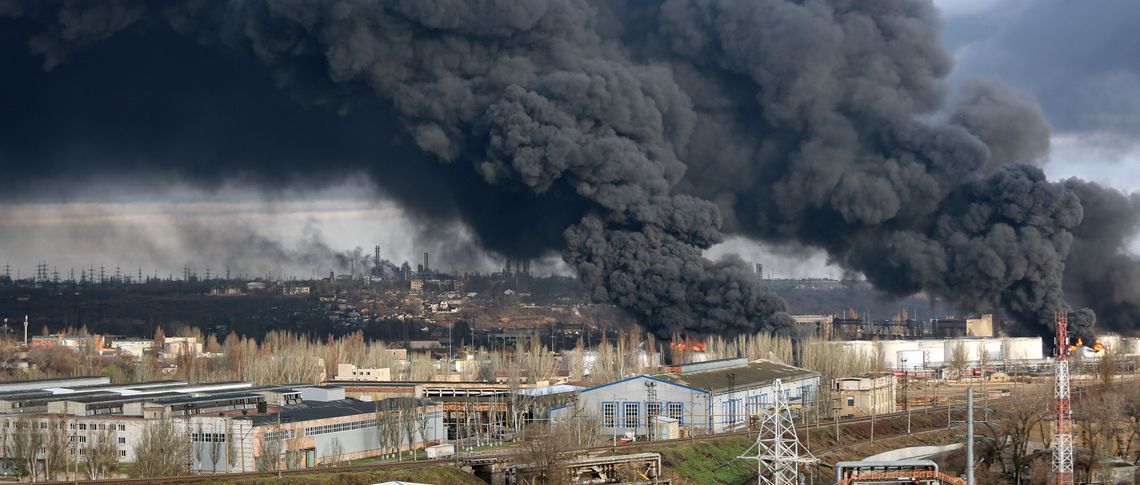

Dr. med. Angelika Claußen is Co-Chair of the German section of IPPNW (International Physicians for the Prevention of Nuclear War / Physicians in Social Responsibility) and President of IPPNW Europe.

The largest banks operating in the US market have sufficient resources to withstand a severe economic downturn, the Federal Reserve says –
The Myanmar junta's National Defence and Security Council gave unanimous approval for the decision, according to state media

Myanmar's junta has cracked down on opposition following the ouster of Aung San Suu Kyi
Myanmar's junta will extend the state of emergency in the country for a further six months, state media reported on Monday.
The junta first declared a state of emergency after seizing power from the elected government of Aung San Suu Kyi in a coup in February last year.
Leader of the junta, Min Aung Hlaing requested the military government to "allow him to serve for an additional 6 months," according to a report in the Global New Light of Myanmar.
The report said members of the junta's National Defence and Security Council unanimously supported the decision.
The state of emergency was declared in February 2021, after a coup ousted Suu Kyi's government. The junta has said elections will be held, and the state of emergency would be lifted by August 2023.
However, doubts have been raised about whether the elections will take place at all.
The army alleges election fraud during the 2020 elections, which were won by Suu Kyi's National League for Democracy (NLD). Election monitoring groups have found no evidence of fraud.
Suu Kyi has been detained since the coup, and faces multiple charges.
Since the takeover, there has been a crackdown on dissent and press freedom. On Saturday, a Japanese video journalist was detained by security forces in Myanmar while covering a protest against military rule in Yangon, according to pro-democracy activists.
The Japanese government on Monday later confirmed that one of its citizens had been arrested in Myanmar, with Tokyo calling for his release.
Deeper Hegemony: The Populist Politics of Sinhala Nationalist Discontent and the Janatha Vimukthi Peramuna in Sri Lanka